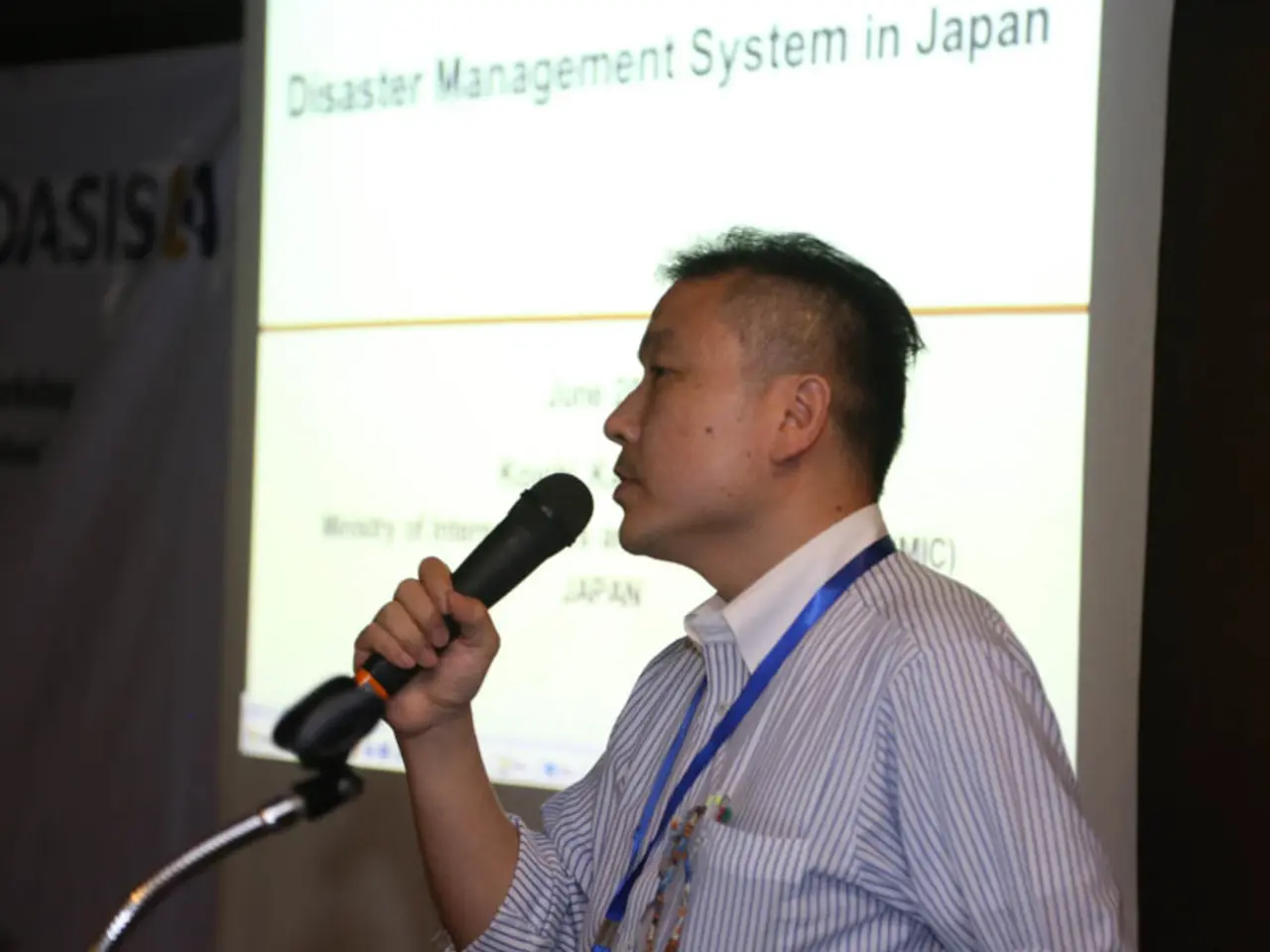Massive 8.8 earthquake hits off the coast of Russia's Kamchatka Peninsula, prompting Japan to issue a tsunami alert.
Massive 8.8 Earthquake Off Kamchatka Peninsula Triggers Tsunami Warnings Across Pacific
An 8.8 magnitude earthquake struck off the eastern coast of the Kamchatka Peninsula, Russia, early on Wednesday (July 30), causing a Pacific-wide tsunami warning and prompting massive evacuations across several regions.
The earthquake, which occurred at approximately 06:24 AM Japan Standard Time (JST), was initially reported by the United States Geological Survey (USGS) before being revised to 8.8 from an initial 8.0. The epicentre was located about 125 kilometres southeast of Petropavlovsk-Kamchatsky, a city with a population of 165,000 people.
The Kamchatka Peninsula, situated on the Pacific Ring of Fire, is known for its intense geological activity. The quake triggered a tsunami, causing waves up to 3-5 metres in some areas and locally reaching a run-up of 19 metres on Shumshu Island near Kamchatka.
The Japan Meteorological Agency issued a tsunami warning for the Pacific coastline of Japan, extending from Hokkaido to Kyushu. Residents were urged to evacuate from the coastline of the Kamchatka Peninsula due to the tsunami threat. The Agency predicted that the tsunami waves would impact the coastline starting around 10:00 AM JST.
Approximately 1.9 million people were evacuated from coastal prefectures in Japan as a precaution. The tsunami's impact on New Zealand was minor, with the largest wave recorded at 55 cm on the Chatham Islands, not warranting evacuation there. Russia declared a state of emergency in the northern Kuril Islands after tsunami waves struck Severo-Kurilsk.
The Fukushima Daiichi and Daini nuclear plants were evacuated as a precaution, but no safety issues were reported. The tsunami caused shifting water currents and debris movement, demonstrating how even relatively small tsunami heights can be dangerous.
Despite the immense magnitude, the earthquake caused moderate ground damage and resulted in around 21 injuries in Kamchatka Krai and Sakhalin Oblast. The tsunami waves caused significant flooding and damage on Shumshu Island.
Monitoring and rapid alert systems helped millions evacuate and prevented mass casualties. The Minister for Emergency Situations in the Kamchatka region, Sergey Lebedev, confirmed that tsunami waves of 3-4 metres hit certain areas of the peninsula. The Japan Meteorological Agency raised its warning level, predicting that tsunami waves of up to 3 metres would impact the coastline of Japan.
Authorities remain vigilant due to the ongoing risk of aftershocks and tsunami surges.
- Despite the global focus on the earthquake and tsunami, general news outlets continue to report on war-and-conflicts, politics, and crime-and-justice around the world.
- In a stark contrast to the natural disaster, car-accidents claimed several lives in major cities, highlighting the need for improved road safety measures.
- Meanwhile, sports enthusiasts eagerly awaited the upcoming Champions League, NFL, soccer matches, WNBA games, baseball competitions, hockey fixtures, golf tournaments, and European leagues in basketball and football.
- News of the Masters and Grand Prix racing seasons also captured the attention of racing fans, while horse-racing tournaments unfolded in various countries.
- Mixed martial arts aficionados kept abreast of the latest updates from the UFC and other relevant competitions.
- Amidst these events, weather forecasting remained essential for both casual and professional followers who planned their day accordingly.
- The weather also played a crucial role in various sports sessions, such as tennis matches, influencing playing conditions and strategies.
- Speaking of strategies, sports-analysis segments continue to educate fans on the intricacies and tactics employed by their favorite teams and athletes.
- Recognizing the dangers of natural disasters, numerous organizations and governments have invested in creating early warning systems and emergency preparedness plans.
- The recent earthquake highlights the importance of such systems, as they proved instrumental in saving lives and minimizing damage.
- The rapid response from authorities in evacuating affected areas demonstrates the efficiency of well-coordinated emergency management.
- However, it's essential to remain vigilant, as the risk of aftershocks and tsunami surges persists following a major earthquake.
- In light of these events, sports-betting operators have issued notices regarding the potential impact on European leagues, NBA, NCAA Basketball, MLB, and NHL events.
- As Serena Williams continued her winning streak in the WNBA, LeBron James led the Lakers to another victory in the NBA, and baseball stars displayed exceptional performances in the MLB, sports continue to captivate audiences worldwide.
- The Kamchatka Peninsula earthquake and tsunami were followed closely by international news outlets, but Serie A, Laliga, and NCAA Football continued to unfold as well.
- It's not only professional sports that have impacted fans; weather patterns have also been of interest to both meteorologists and casual weather-watchers.
- Auto-racing enthusiasts kept tabs on the progress of various championships, while some followed the weather to determine the best conditions for their outdoor activities.
- Analysis segments on sports programs delved into the strategies employed by top athletes, as well as discussing the impact of weather on various competitions.
- In the face of Natural disasters like the Kamchatka Peninsula earthquake, improving global early warning systems and emergency preparedness plans will become increasingly important to save lives and mitigate damages in the future.






